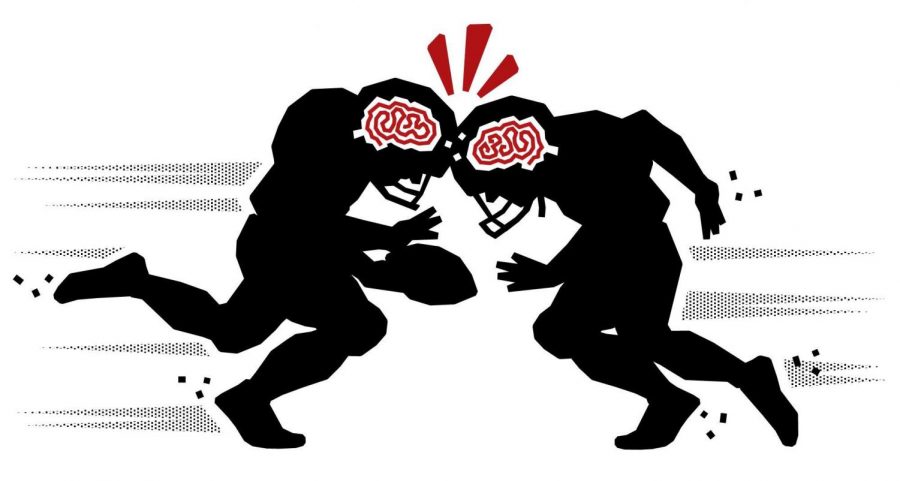Concussion concerns raised for youth football players
September 19, 2018
The Woodstock youth football league, Thunder, held an open house during March of this year to welcome players to the new season. Along with meeting the coaches and new teammates, all players over 10 got to take part in baseline concussion testing, which, according to the Thunder website, “tests cognitive ability to measure working memory, reaction time, speed and concentration..[to help] to evaluate an athlete’s condition and his or her ability to safely return to school and play.”
As of 2017, concussion testing for many youth teams is not mandatory, but is offered. Parents with children participating in tackle football are encouraged to accept the offer and get their child tested. These young athletes are at risk every time they play, and one tackle can result in a head injury.
When asked about her first-hand experiences with the young athletes, nurse of 28 years and school nurse in McHenry county of 11 years, C. Schrock said, “at both elementary and middle schools I have worked at, I have seen a number of head injuries from football. In Thunder, the bigger kids can just overrun the little kids. They’re taught to run hard and play hard, and the odds are just against the smaller players.”
In a game like this, it goes without saying that kids participating in tackle football should be regularly tested, but what warrants concern is whether athletes under 12 should be playing tackle football at all. Many people will jump directly to thinking of severe concussions. A 9-year old and a 10-year old running towards each other, and the 10-year old hits the other player in just the right place and just hard enough to knock him or her out. Although concussions are a dangerous and common occurrence, the silent threat, one that goes unnoticed through years of tackles, is chronic traumatic encephalopathy, or CTE.
The Concussion Legacy Foundation describes CTE as a “degenerative brain disease found in athletes..[i]n CTE, a protein called Tau forms clumps that slowly spread throughout the brain, killing brain cells. CTE has been seen in people as young as 17, but symptoms do not generally begin appearing until years after the onset of head impacts.” This means that not one big hit to the head, but many seemingly insignificant ones, are what could put children at risk before they graduate high school.
Doctors and ex-players alike encourage parents to hold off on signing their kids up for tackle football before high school. Although this may seem extreme, the benefits of waiting a little longer to put on the helmet can be life saving. In a 2016 journal entitled Radiology, a study states that “researchers conducted neuroimaging tests on 25 youth football players between the ages of 8 and 13; [and] they found a significant relationship between head impacts and changes to white matter.” White matter is tissue which contains mostly nerve fibers and neurons, and is essential in the process of communication between neurons. In other words, white matter plays a large role in brain function, and is key in the development of children.
With the football season underway, nurse Schrock asks parents to stay informed. “I would really encourage parents to do their research, not just on concussions, but on all head injuries, just so they know about the developing brain and what effects it. They should know what impact it could have on their child’s developing brain,” said Schrock.
After being asked about players taking the baseline concussion tests, Schrock stated: “For contact sports, it should be mandatory. You need a baseline of cognitive function, because it’s not really known the degree of impact and how many instances of impact are going to cause damage. Who knows? And there needs to be a baseline for that.”
On March 1 of this year, the Northwest Herald reported that, after deliberation in Springfield, a Bill was passed to the House floor stating that “Illinois children could not play tackle football until age 12 under a plan a House committee endorsed.” This looked like a big step for promoting safer gameplay. However, after one month, an article in the Chicago Tribune reported that this bill “to ban tackle football in Illinois for kids under age 12 is effectively dead for now.”
Some parents may consider the dangers of tackle football and remove their child from the game, and some may choose to disregard the dangers and encourage their athletes to keep playing. If this is the case, it is advised that they at least consider the baseline concussion testing, and observe their children for any behavioral changes during and after the season.

